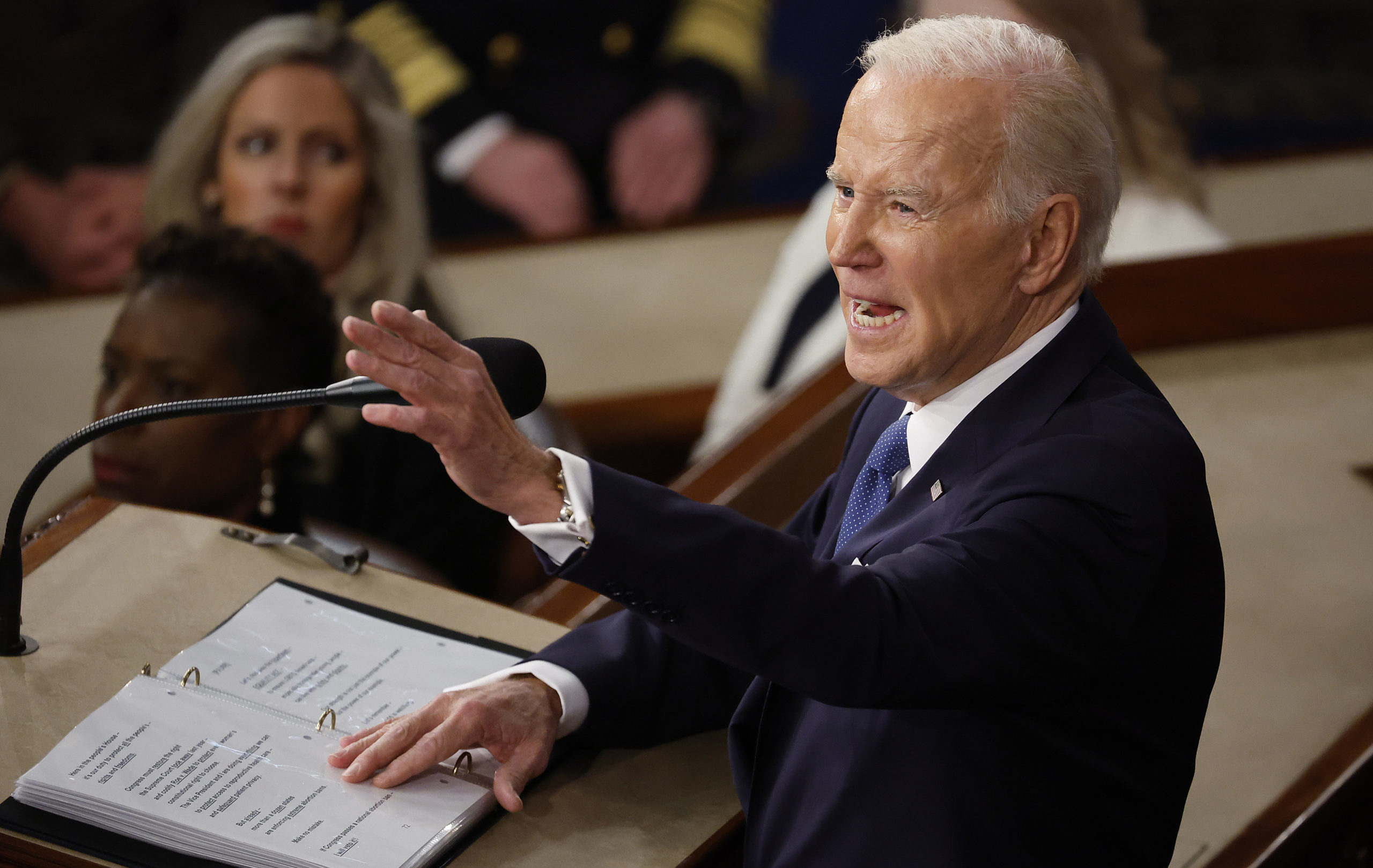Any Given Tuesday
The best argument for Biden to continue in the race: He’s the candidate voters chose.

Besieged by mutinous members of the Democratic Party of which he is the purported leader, and beset with a fresh batch of respiratory symptoms thanks to a surprise case of Covid, President Joe Biden entered the weekend with something else he didn’t want or need: unsolicited sports analogies.
On Thursday, the New York Times and other media outlets made public a July 6 letter that was written to Biden by one of his many former best buds, Representative Jamie Raskin (D-MD). Therein, Raskin worshiped, honored and exalted the president—well, for three out of his letter’s four pages, at least.
“As a truly great and magnificent leader, you belong to all of us,” wrote Raskin in language that might make even Trump groupies blush. “Sometimes it will be hard for you to perceive, much less fully comprehend, the substance and character of your own greatness.”
The letter goes on like this for a while: Raskin refers to Biden’s “true greatness as a leader,” describes his presidency as “one of the finest in American history,” and calls him, apparently without irony, “a great politician, in the finest sense of the word.”
Of course, all of this flattery and sweet-talking was marshaled for a craven political purpose: to induce, apparently as charmingly as possible, the 46th president to withdraw forthwith from the 2024 presidential campaign that he is on track to lose to former President Donald Trump.
“We have an overriding obligation to defeat the forces of resurgent monarchy and oppression,” wrote Raskin, seemingly referring to heretofore unknown reports of a potential monarchic takeover of the United States by—who, again? King Charles III? Princess Kate?
But then Raskin trotted out a baseball analogy.
The letter notes that “even the finest pitchers have only around 110 pitches in them before their arms tire and begin to give out,” and that, for Biden, “there is no shame in taking a well-deserved bow to the overflowing appreciation of the crowd when your arm is tired out.”
With a single metaphor, Raskin managed to equate Biden’s years-long, visibly worsening weaknesses in cognition, comprehension, and coherent speech to the fleeting muscle soreness of a professional athlete.
Yet Raskin may not be entirely wrong in invoking sports to describe the president’s predicament.
In fact, in considering the increasingly manic (and maniacal) Democratic efforts to bring out Biden’s withdrawal from the race, another sports metaphor comes to mind—but it illustrates precisely the opposite lesson as Raskin’s.
Let us consider the case of the Super Bowl underdog.
As we all know, each year the National Football League arranges a widely publicized collision between the champions of the American Football Conference (AFC) and National Football Conference (NFC): the Super Bowl. For the purposes of this thought experiment, think of the conferences as the Republicans and the Democrats, their teams as their candidates, the playoffs as the primaries, and the Super Bowl as the general election.
As any pro football fan knows, it is a mistake to infer that the AFC champion and the NFC champion are necessarily the top teams in their respective conferences. The playoffs produce the team that has obviously performed the best but it may or may not actually be “the best” team for the forthcoming Super Bowl. By the same token, the candidate who emerges through the primary process has obviously won the most delegates but he or she may or may not be the strongest candidate for the forthcoming general election.
Sometimes otherwise undistinguished teams (or candidates) enjoy unlikely win streaks during the playoffs (or primaries); sometimes, those win streaks persist long enough to place them in the Super Bowl (or the general election).
Let us recall the case of the 2007 New York Giants, which accumulated a respectable but unintimidating 10–6 record during the regular season. During the playoffs, the Giants bested the 9–7 Tampa Bay Buccaneers (arguably a gimme), the 13–3 Dallas Cowboys (impressive) and the 13–3 Green Bay Packers (even more impressive). And, in the 2008 Super Bowl, the NFC Champion Giants crushed the AFC Champion New England Patriots—which had easily, and rather merrily, achieved a 16–0 regular season record.
Before that victory, though, few football experts could have foreseen the Giants’ playoff triumph, and almost no one would have anticipated their eventual Super Bowl victory. And today, the Democratic Party cannot envision Biden—despite having coasted through the recent contests—defeating Trump in the forthcoming Big Show.
In such cases, the temptation is to simply swap out the weak contestant seemingly destined to lose.
Subscribe Today
Get daily emails in your inbox
How would this work in the world of football, though? If, somehow, the NFC could have swapped out the over-performing but essentially unimpressive Giants for a team that looked like a safer, surer bet against the Patriots, wouldn’t they have done just that? Of course, the idea is preposterously, ludicrously, egregiously unfair—but so is removing Biden from the ballot.
In the NFL, the teams that have emerged through the playoffs must play in the Super Bowl, even if one of them looks really weak on paper. The game must be played, and sometimes, as was the case with the Giants, an upset occurs. In our present moment, the NFL is apparently more democratic than the Democratic Party.
As Joe Biden rests up in Delaware this weekend, he should do himself a favor: watch a tape of that Giants-Patriots Super Bowl from 2008. Maybe get Eli Manning or Tom Coughlin on the phone. And, come Election Day, pray for a Hail Mary. Don’t let them pull you at halftime, Joe.